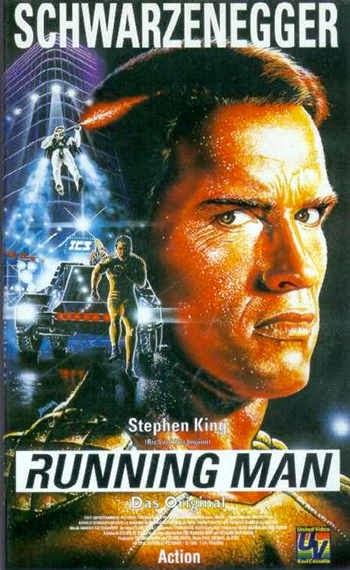Horror sequels to beloved franchises usually get a bad wrap, and for good reason. A truly remarkable, original film comes out that changes the dialogue of horror movies. People excited and crave more. Inevitably, ripoffs and cash-ins happen - look in any Redbox for an example. The originals become the mark of excellence and a high point of comparison, and the hangers-on clutch at straws trying to recapture a bit of magic (or just a bit of the money). But you always still have the original
Halloween, Psycho, Nightmare on Elm Street, etc. to hold on to. It feels almost like a betrayal then when the classics are followed by totally-official, totally-canon, totally-disappointing sequels.

The Halloween franchise is an interesting case in how fan expectations play into horror sequels.
Halloween 3 is currently enjoying a reappraisal among horror fans as an ambitious and totally-off-the-fucking-wall effort to expand the franchise in a less-literal way. Sure, it's not scary at all, but it was John Carpenter trying to take the franchise in a different direction. Originally, Carpenter had no plans to continue the Michael Myers character past the first movie, but fans demanded more of the slasher stuff. He wanted each Halloween sequel in the series to be an independent, annual anthological horror entry with a whole new story and cast. The studio forced his hand, and
Halloween 2 happened. John Carpenter saw the writing on the wall, and didn't want another cheapo continuation. While not a bad movie,
Halloween 2 feels almost like a pornographic, cheap thrill, which is why Carpenter didn't want to direct it. He eventually served as producer, and went behind the director's back to shoot the vicious kills in the movie, which were edited in (The director understandably didn't like this, but forget that guy because he's not John Carpenter). He didn't want to play the studio's game originally, but admirably he played damage control, which greatly improves
Halloween 2. It's clearly a flawed movie conceptually, and feels far too literal and small to just have Michael chasing after Laurie Strode (Jamie Lee Curtis -
House Arrest) all over again. When time for a third one came around, John Carpenter got his wish, and
Halloween 3 happened. I'd rate this more as an ambitious failure than a diamond in the rough, but alternative film culture is attempting to reclaim it as the strange movie it is. It's got a killer John Carpenter score (one of his best), Tom Atkins returns with his mustache, and there's a few nonsensical but creepy deaths. The Michael Myers-less concept isn't its weakness; it stands as its sovereign movie. I'm no champion of
Halloween 3: Season of the Witch (not featuring any witches, though is pretty kickass subtitle as far as those things go). However, I'm all about critical reappraisal, so I'm going to throw down for
The Exorcist 3 instead.



